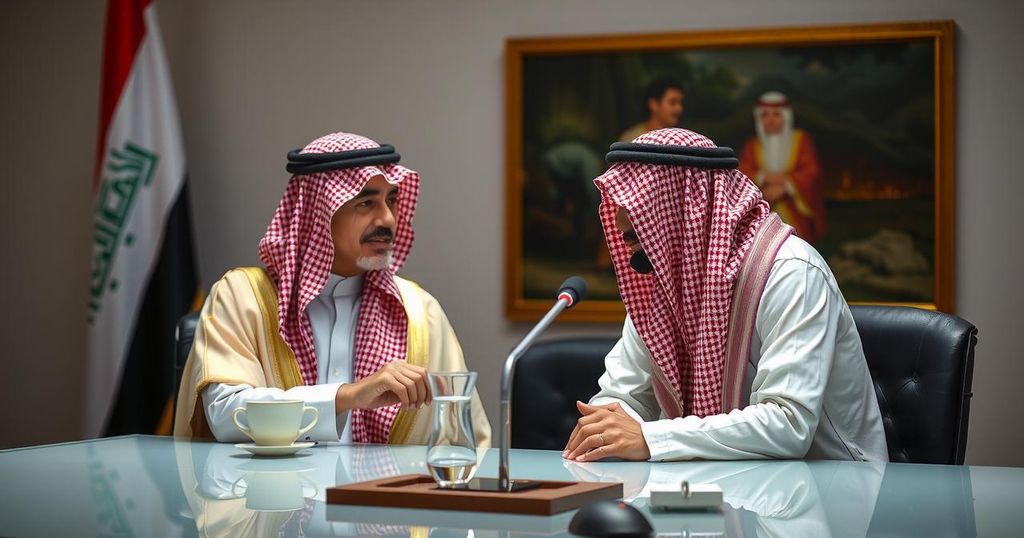Qatar Leads Arab Initiative to Engage Forces for Syrian Stability

Arab states, led by Qatar, are engaging in discussions with all forces in Syria to prevent a resurgence of civil war following the collapse of President Bashar al-Assad’s regime. The initiative seeks to ensure an inclusive transition for all ethnic groups, avoiding violence and fostering dialogue among military factions. Turkey’s role and the presence of the Islamist militant group Hayat Tahrir al-Sham are also significant factors in these discussions.
Arab states have initiated an open dialogue to stave off the threat of a resurgence of civil conflict in Syria. The Qatar foreign ministry, represented by spokesperson Majed al-Ansari, emphasized that discussions will involve all forces on the ground to foster an inclusive transition for all Syrians, irrespective of their ethnic backgrounds. This move follows a recent meeting in Doha among Arab leaders who assessed the precarious condition following the abrupt weakening of President Bashar al-Assad’s regime.
Majed al-Ansari remarked on the relatively minimal violence preceding the regime’s collapse, stating this scenario facilitates international engagement while minimizing the risk of renewed confrontations. He acknowledged the preservation of essential state functions such as policing, water, and electricity, asserting there should be no bloodshed in the forthcoming transition. Al-Ansari insisted that all parties, without exception, must feel secure and included in Syria’s future governance.
He urged the necessity of open dialogue to efficiently coordinate military forces and avert potential clashes among various factions in the upcoming weeks. Al-Ansari noted uncertainties regarding which military factions might be dominant and whether the regime’s disintegration had been spontaneous. He cautiously referenced the potential for the situation to mirror the failed Arab Spring uprisings in other regions, highlighting the risks that could emerge from mismanagement.
Recognizing Turkey’s significant influence due to its proximity to Syrian refugees and established links with militant groups, Al-Ansari also called on Israel to refrain from taking actions that could escalate tensions until a national dialogue begins. He did not clarify if the dominant militia, Hayat Tahrir al-Sham, should be removed from the UN terrorist list, but he hinted at the necessity for their involvement in any transitional government framework.
Al-Ansari noted the responsibility of the Syrian populace in determining Assad’s fate, including the topic of potential charges brought against him at the international level. He criticized the Assad regime for missing opportunities for dialogue, which has led to the current turmoil, stressing the importance of allowing the Syrian people to shape their future governance and justice mechanisms.
On inquiries regarding President Bashar al-Assad’s current whereabouts, Al-Ansari remarked, “He is in the wind. He is no longer in the city. There has been no confirmation… around any capital around the region.”
This developments indicate a new phase in Syrian affairs, emphasizing dialogue and inclusivity as paramount to establishing stability.
The ongoing conflict in Syria has created a complex situation marked by the fragmentation of power among various military factions, with significant humanitarian and strategic implications for the region. The Assad regime, which faced intense criticism and opposition since the outbreak of the civil war, has seen its authority increasingly challenged. Recent developments suggest the regime’s control is weakening, prompting Arab states to intervene proactively to help avert further violence and ensure a stable political transition.
In conclusion, Qatar’s call for an inclusive dialogue among all Syrian factions highlights the urgency of maintaining peace and stability in a region threatened by renewed conflict. The recognition of the need for a concerted effort to facilitate a peaceful transition represents a significant shift in Arab diplomacy concerning Syria. The intricate dynamics involving neighboring countries further underline the necessity for coordinated engagement to safeguard the interests of the Syrian people and prevent a descent into chaos.
Original Source: www.theguardian.com





